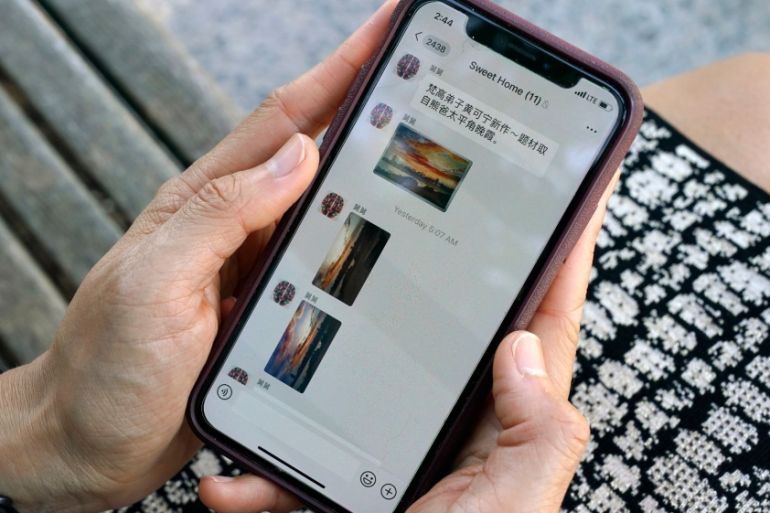Judge delays US attempt to ban WeChat messaging app
The White House has sought to restrict the use of the Chinese app, citing national security and data privacy concerns.

A United States federal judge has approved a request from a group of WeChat users to delay looming US government restrictions that would effectively make the popular app nearly impossible to use in the country.
Magistrate Judge Laurel Beeler said the government’s actions would affect users’ First Amendment rights as the effective ban on the app removes their platform for communication.
Keep reading
list of 4 itemsRussia’s Putin eyes greater support from China for Ukraine war effort
India-Iran port deal: A gateway to Central Asia or a geostrategic headache?
India’s income inequality widens, should wealth be redistributed?
WeChat is a messaging focused app popular with many Chinese-speaking Americans that serves as a connector to friends, family, customers and business contacts in China. It is owned by Chinese tech giant Tencent.
|
|
WeChat users who filed a lawsuit against the government “have shown serious questions going to the merits of the First Amendment claim, the balance of hardships tips in the plaintiffs’ favor”, the San Francisco-based judge said in an order dated Saturday.
The WeChat users filed the lawsuit after the US Commerce Department said on Friday it would bar WeChat from US app stores and keep it from accessing essential internet services in the country, beginning on Sunday night.
The government cited national security and data privacy concerns in taking action against WeChat and imposing similar restrictions on TikTok, another popular Chinese-owned app.
The restrictions on TikTok were pushed back by a week on Saturday after President Donald Trump said he supported a proposed deal that would make TikTok a US company.
In the ruling, the court said a WeChat ban “eliminates all meaningful access to communication in the plaintiffs’ community” and that an injunction would be in the public interest.
The US government had earlier argued that it is not restricting free speech because WeChat users still “are free to speak on alternative platforms that do not pose a national security threat”.
Judge Beeler also said that specific evidence cited by the government to show WeChat posed a national security threat was “modest”.
The dispute over the two apps is the latest flashpoint in the rising tensions between the world’s two largest economies, as the Trump administration attempts to counter the influence of China.
Since taking office in 2017, Trump has waged a trade war with China, blocked mergers involving Chinese companies and stifled the business of Chinese firms like Huawei, a maker of phones and telecom equipment.